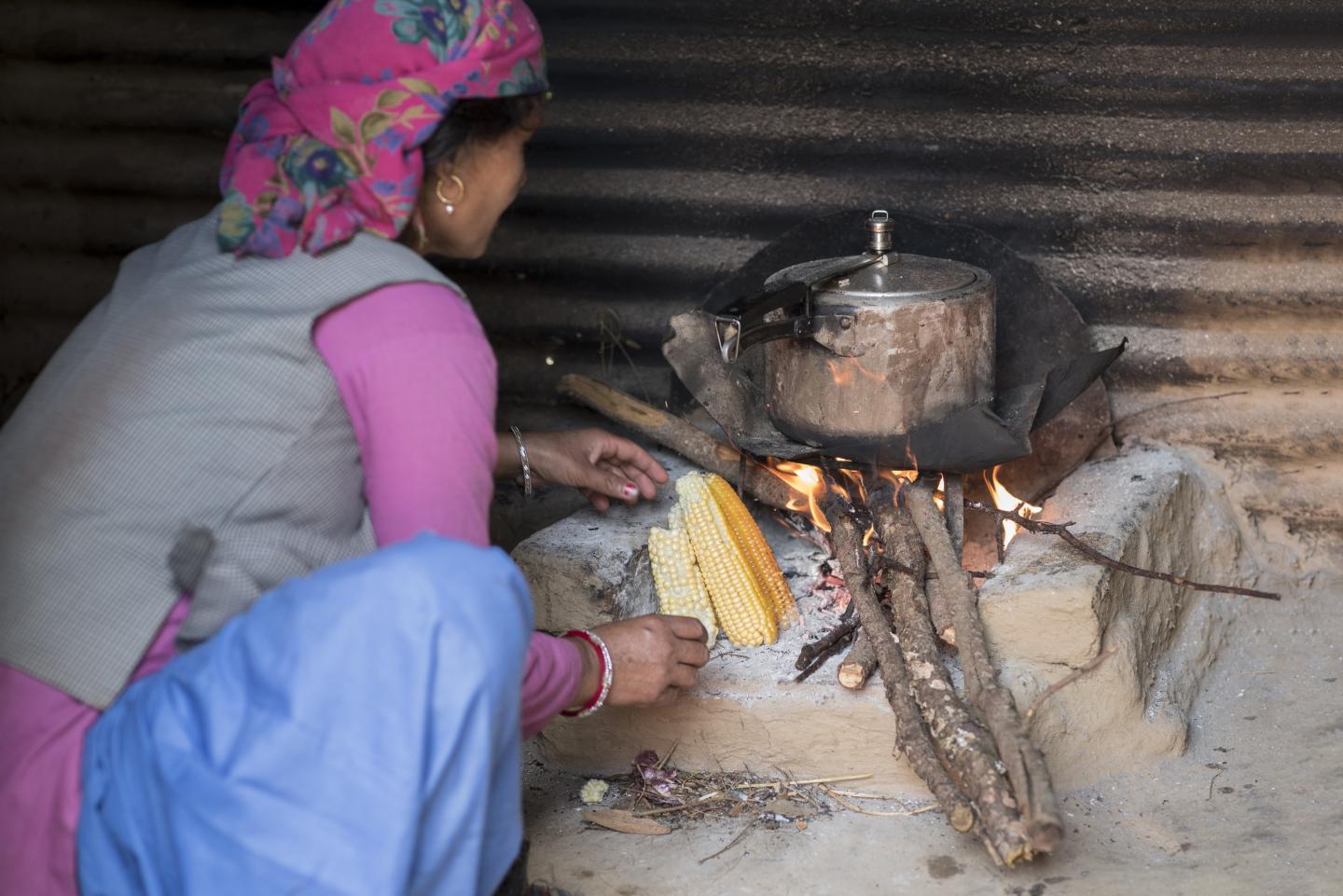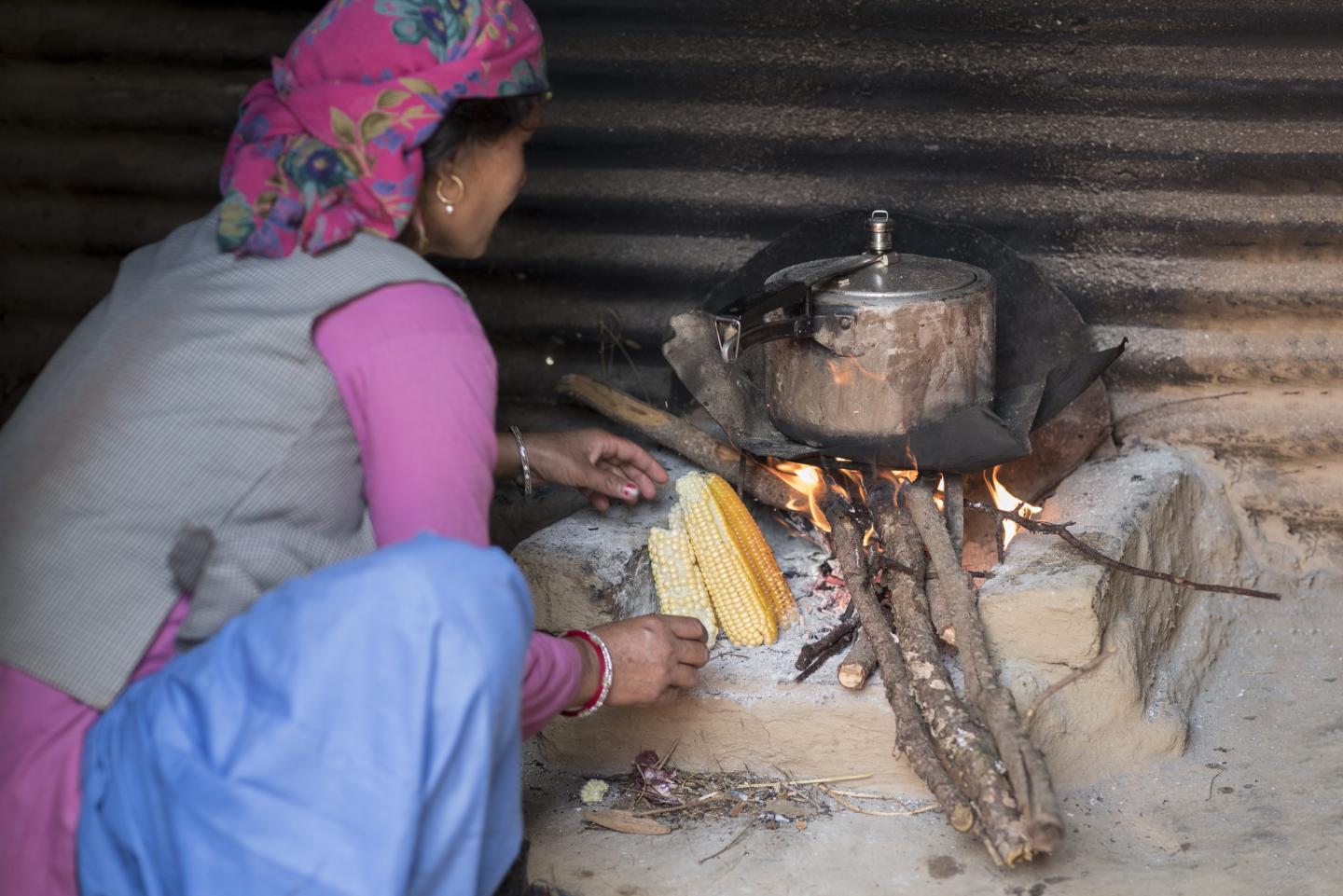
Credit: ATS
Jan. 13, 2017 — Replacing biomass and kerosene cookstoves used throughout the developing world with clean-burning ethanol stoves may reduce hypertension and cardiovascular risk in pregnant women, according to new research published online, ahead of print in the American Thoracic Society's American Journal of Respiratory and Critical Care Medicine.
In "Randomized Controlled Ethanol Cookstove Intervention and Blood Pressure in Pregnant Nigerian Women," researchers report that the frequency of developing hypertension and diastolic blood pressure (the bottom number) were decreased in pregnant women who cooked with ethanol, rather than with traditional cookstoves fueled by wood or kerosene. Systolic blood pressure (the top number) did not change significantly.
"Although previous studies found that exposure to household air pollution increased the risk of adverse pregnancy outcomes, no randomized, controlled trial had investigated whether clean-burning fuel would reduce the incidence of hypertension in pregnant women," said lead study author Christopher O. Olopade, MD, MPH, professor of medicine and family director of international programs at the University of Chicago's Pritzker School of Medicine.
Dr. Olopade and his colleagues enrolled 324 pregnant women living in Ibadan, Nigeria, in their study. Women who smoked or lived with a smoker or who cooked for a living were excluded from the study. None of the women enrolled were hypertensive (defined as systolic blood pressure ? 140 mmHg and/or diastolic blood pressure ? 90) when they enrolled and were randomized into the study between the 16-18th weeks of pregnancy.
Half of the participating women who previously cooked with firewood or kerosene were randomly assigned to cook with ethanol. The other half continued to cook with either wood or kerosene. Blood pressure was recorded during six patient visits.
By the end of the study, the researchers found:
- 6.4 percent of those cooking with wood or kerosene became hypertensive compared with 1.9 percent of those cooking with ethanol.
- 8.8 percent of those cooking with kerosene became hypertensive compared to only 1.8 percent who were randomized from kerosene to ethanol.
- Mean diastolic blood pressure was 2.8 mmHg higher among those cooking with wood or kerosene than those cooking with ethanol.
- Mean diastolic blood pressure was 3.6 mmHg higher among those cooking with kerosene than those cooking with ethanol.
Dr. Olopade said the findings support the call by the World Health Organization to remove kerosene as a home cooking or heating fuel. All participants were informed about the harmful effects of smoke exposure, and women cooking with either fuel were encouraged to cook outside or in a well-ventilated room.
"The results of our study add to the evidence that vulnerable populations, especially pregnant women, would gain important health benefits from stoves that burn clean fuels," Dr. Olopade said. "Additional studies are still needed to determine how much of a reduction in exposure levels will result in significant and sustained health benefits."
###
Funding:The Global Alliance for Clean Cookstoves, Richard and Susan Kiphart, Project Gaia and Shell provided support for the study.
Share via Twitter
"Study finds that clean #cookstoves may reduce #hypertension in pregnant women."
Follow Us
ATS – @atscommunity
AJRCCM – @ATSBlueEditor
About the American Journal of Respiratory and Critical Care Medicine (AJRCCM):
The AJRCCM is a peer-reviewed journal published by the American Thoracic Society. The Journal takes pride in publishing the most innovative science and the highest quality reviews, practice guidelines and statements in pulmonary, critical care and sleep medicine. With an impact factor of 12.996, it is the highest ranked journal in pulmonology. Editor: Jadwiga Wedzicha, MD, professor of respiratory medicine at the National Heart and Lung Institute (Royal Brompton Campus), Imperial College London, UK.
About the American Thoracic Society:
Founded in 1905, the American Thoracic Society is the world's leading medical association dedicated to advancing pulmonary, critical care and sleep medicine. The Society's 15,000 members prevent and fight respiratory disease around the globe through research, education, patient care and advocacy. The ATS publishes three journals, the American Journal of Respiratory and Critical Care Medicine, the American Journal of Respiratory Cell and Molecular Biology and the Annals of the American Thoracic Society.
The ATS will hold its 2017 International Conference, May 19-24, in Washington, DC, where world-renowned experts will share the latest scientific research and clinical advances in pulmonary, critical care and sleep medicine.
Media Contact
Dacia Morris
[email protected]
212-315-8620
@atscommunity
http://www.thoracic.org





